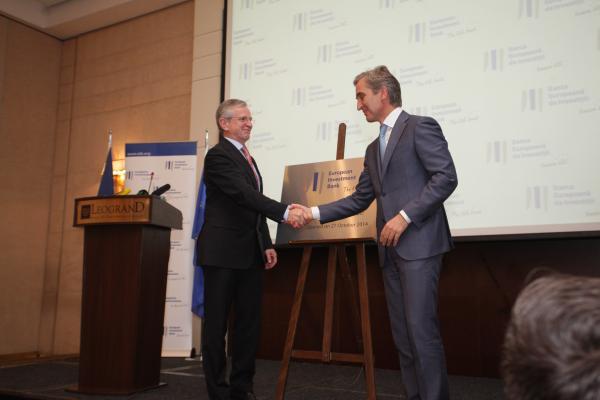
The European Investment Bank (EIB) is opening an office in Chisinau to support business, develop contacts with the public and private sectors, and strengthen relations with promoters, partner banks and other IFIs in Moldova.
The office was unveiled today by EIB Vice-President Wilhelm Molterer in the presence of Moldova’s Prime Minister Iurie Leanca, the Head of the EU Delegation to Moldova, Ambassador Pirkka Tapiola, Ambassadors of the EU Member States and representatives of Moldova’s Government and banking and business communities.
“Moldova is the No. 1 recipient of EIB loans among the Eastern Partnership countries in per capita terms. There is excellent potential for further increasing our assistance as the country aims for deeper economic integration with the EU following the creation of a free trade area. We would like to use this potential to the full,” said Vice-President Molterer.
The EIB has signed 13 projects in the country since the start of its operations there in 2007, for a total loan volume of EUR 586 million in support of transport and water infrastructure, the agricultural and food processing sectors, and small and medium-sized enterprises. A sizeable portion of EIB loans has been accompanied by EU grants from the Neighbourhood Investment Facility.
Moldova’s Prime Minister Iurie Leanca said: “We have always put great emphasis on the speed of project development and implementation. It is important for our people to see the results of EIB activity that brings positive changes to people’s lives. Project preparation takes time. I am sure that a representative office will substantially speed up this process, and that it will also ensure better visibility of the EIB’s activity here in Moldova.”
Ambassador Pirkka Tapiola, Head of the EU Delegation to Moldova, noted: "The opening of the EIB office in Chisinau highlights the EU’s commitment to enhanced cooperation with the Republic of Moldova. It will also ensure a consolidated approach to the implementation of EU assistance in Moldova, so helping to improve the lives of Moldovans and provide them with concrete benefits."

Photographer: EIB ©To be defined
Download original

Photographer: EIB ©To be defined
Download original

Photographer: EIB ©To be defined
Download original

Photographer: EIB ©To be defined
Download original

Photographer: EIB ©To be defined
Download original

Photographer: EIB ©To be defined
Download original

Photographer: EIB ©To be defined
Download original

Photographer: EIB ©To be defined
Download original

Photographer: EIB ©To be defined
Download original